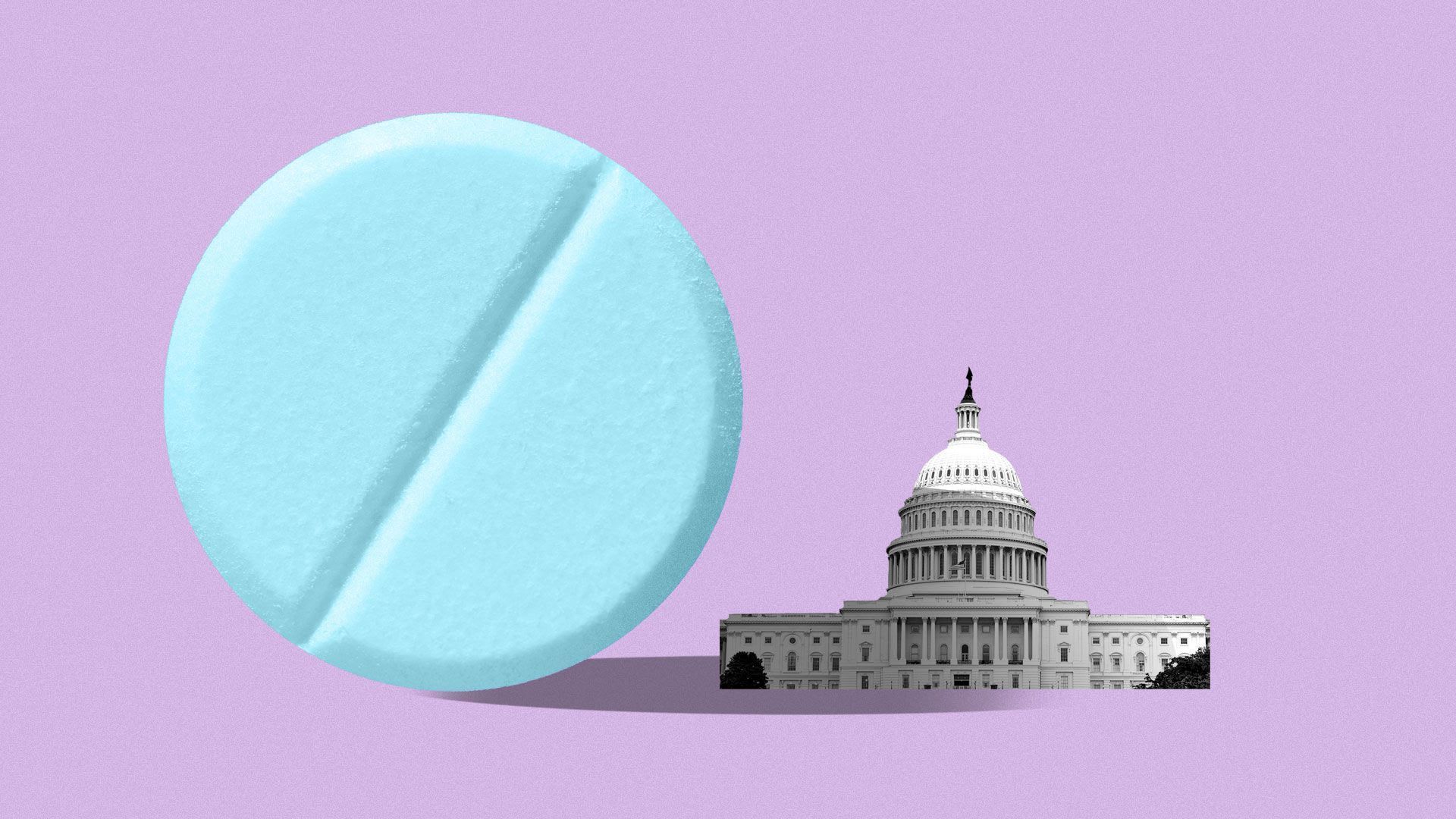
Illustration: Aïda Amer/Axios
The Senate will still have an extremely narrow majority in 2023, but with some new curveballs, like HELP Chairman Bernie Sanders and a GOP House across the Capitol.
- That might not sound like a recipe for tons of health policy action, but here's what we're hearing about the areas where senators are at least going to try.
1. PBMs. Action on PBMs is maybe the issue with the best chance, given the bipartisan and bicameral interest in targeting any role they may have in high drug costs for patients.
- Finance Committee Chairman Ron Wyden told Axios before lawmakers left for the holidays that "middlemen and cost containment" will be health care priorities in 2023, using the somewhat derogatory term for PBMs.
- "I know of people in the House who I think will work with us," Wyden noted.
- He did not get into specifics of what he wants to do, but in the past he has proposed the C-THRU Act, which includes transparency requirements on the rebates PBMs receive and would require PBMs to pass on a minimum percentage of rebates to health plans.
2. Nursing shortage. Incoming HELP Committee ranking member Bill Cassidy previously told Axios he wants to work with Sanders on the nursing shortage. Now, Sanders is reciprocating the interest.
What they're saying: Sanders told Axios he "absolutely" can work with Cassidy on the "catastrophic crisis" in nursing.
- "State after state is spending huge amounts of money on traveling nurses rather than building their own workforce," Sanders said. "I look forward to working with Senator Cassidy, among many other things, to greatly expand our nursing [workforce]."
- The specifics of any agreement are less clear. Sanders has proposed increased funding for nursing education through the Nurse Corps program, but Cassidy was noncommittal on more money, saying he wants to examine the issue first.
Sanders wasn't ready to talk about the big progressive causes he's known for. We asked him if he plans to try to call in pharmaceutical executives to testify, for example, but he declined to discuss his agenda further.
- "It's a little bit too early to talk about that," he said.
3. Mental health parity. Wyden says he is going to make a push for making sure insurers cover mental health at the same level as physical health, but it has been tougher to get bipartisan interest in this issue.
- Some lobbyists previously thought a bipartisan Finance Committee working group on the issue would fail to release any recommendations at all, but it actually did at the beginning of December.
- The recommendations were modest, like calling for GAO studies, and did not include bigger steps opposed by the insurance industry, like financial penalties on insurers found to be breaking parity laws.
- Asked if he would make a renewed push for financial penalties, Wyden said he's going to "keep all our options open," but insisted that what he called "ghost networks" without sufficient mental health providers are "outrageous."
4. Costs. "Next year I think there's an opportunity to do real reforms in the cost containment space," Wyden said. He named capping out of pocket insulin costs for people with private insurance as "up at the top of the list."
- Reality check: That idea has struggled to gain much GOP support, and supporters failed to get it into the omnibus last month.
We asked if hospital prices, which are receiving growing scrutiny in addition to drug prices, are on his target list: "There's not a part of health care where you can't wring more efficiency out of the area," Wyden responded.
- Cassidy told reporters that the "cost of prescription drugs," is a priority for him, but did not elaborate. He has generally proposed smaller-scale, bipartisan ideas like speeding generic drug approvals, compared to Democrats' more sweeping new drug price law.
The bottom line: There are a lot of unknowns about the new year, like how chaotic the House will be, and how much Sanders will prioritize bipartisanship versus progressive causes.
- But it's at least possible for Congress to find somewhat narrower areas of health policy to work on, now that big-ticket partisan items like Obamacare repeal and Medicare drug negotiation are either dead for now or already passed.
